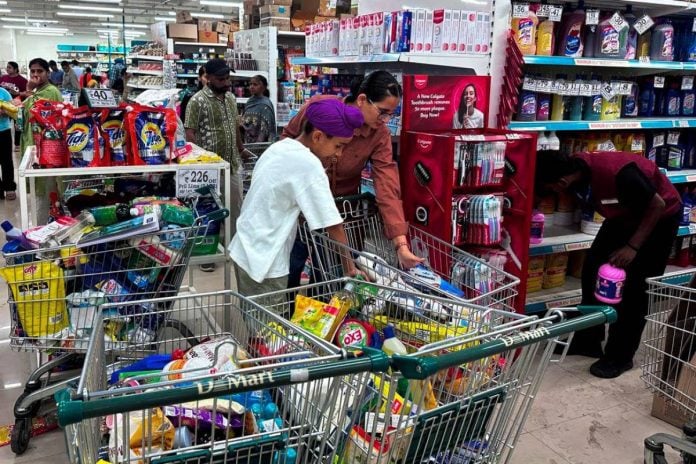NEW DELHI: Indian Finance Minister Nirmala Sitharaman announced significant tax reductions on hundreds of consumer products to stimulate domestic demand amidst economic pressures from US tariffs.
The Goods and Services Tax panel approved simplified tax structures and lower rates on everyday items ranging from personal care products to consumer durables.
Sitharaman confirmed the implementation of a streamlined two-rate system of 5% and 18%, replacing the previous complex four-rate structure that had drawn criticism.
Toothpaste, shampoo, and similar products will now attract only 5% tax instead of 18%, while small cars, air conditioners, and televisions will see their tax reduced from 28% to 18%.
The government has completely removed GST from all individual life insurance policies and health insurance coverage.
Federal and state governments anticipate a combined revenue loss of 480 billion rupees from these cuts, which take effect on September 22 coinciding with the Hindu festival of Navratri.
These tax reductions follow personal tax cuts announced in February and are expected to significantly boost consumption in the nation that recorded 7.8% growth in the June quarter.
SBI chief economist Soumya Kanti Ghosh stated that consumption increases from the GST rationalisation would likely outweigh any potential revenue impact.
The panel introduced a new 40% tax category targeting super luxury items and sin goods including large-engine vehicles, cigarettes, and carbonated beverages.
Consumer goods giants like Hindustan Unilever and Godrej Industries stand to benefit alongside electronics manufacturers Samsung, LG, and Sony.
Automobile manufacturers including Maruti, Toyota, and Suzuki are positioned as major beneficiaries of these tax reforms.
Prime Minister Narendra Modi’s recent call for greater self-reliance prompted the accelerated tax cuts, with his administration vowing to counter US tariffs of up to 50%.
Modi declared that these comprehensive reforms would improve citizen livelihoods and enhance business conditions, particularly for small traders and enterprises. – Reuters








